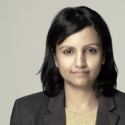The News
African health care leaders said innovative financing solutions will be essential to prevent the collapse of health systems on the continent, with the departure of donor aid funding creating a more important role for startups and public-private investments.
The abrupt withdrawal of USAID funding earlier this year, following a trend of cutbacks from other Western nations, has left a nearly $12 billion shortfall in financing critical services such as maternal and child health, HIV treatment, pandemic preparedness, and disease control.
Last week the Africa Centres for Disease Control and Prevention (Africa CDC) outlined urgent reforms to secure sustainable funding, focusing on domestic financing, health taxes, and public-private investments to close infrastructure gaps. “If we do not act now, we risk losing 20 years of progress in health security, with preventable diseases returning in force and overwhelming already fragile systems,” said Jean Kaseya, director-general of Africa CDC.
Githinji Gitahi, CEO of Nairobi-based nonprofit Amref Health Africa, told Semafor that Africa faced a health care funding gap of roughly $66 billion a year even before accounting for the USAID cuts. “Traditional funding sources like foreign aid and out-of-pocket payments simply aren’t enough. That’s why innovative financing models are essential,” he said.
Gitahi pointed to several “promising approaches” including Rwanda’s health insurance program, which covers more than 90% of the population by combining affordable premiums with government subsidies. Another example, he said, is the “sin taxes” imposed on alcohol, cigarettes, and sugary drinks in South Africa and Botswana, which are generating millions for health care while addressing the growing burden of lifestyle diseases.
Know More
The urgency of Africa’s health financing crisis was highlighted at last month’s Africa Health Agenda International Conference in Kigali where experts said governments needed to diversify funding strategies to reduce their reliance on external aid.
In a recent briefing, the Center for Global Development also wrote that “innovative partnerships” with the private sector were a key part of the solution, pointing to pharmaceutical manufacturing as a prominent example. Last year the vaccine alliance GAVI launched the African Vaccine Manufacturing Accelerator, a financing instrument that will make up to $1.2 billion available over 10 years to support local vaccine production. Afreximbank also committed $2 billion to this push toward vaccine sovereignty.
Frederik Kristensen, head of the Regionalized Vaccine Manufacturing Collaborative, an initiative set up to help potential manufacturers find funders, said it was a crucial time to help Africa become less reliant on imports after the COVID-19 pandemic exposed stark global vaccine inequalities. “It’s really important in terms of health security,” he told Semafor, “if there is an outbreak that there are vaccine manufacturers on the continent which can switch to producing vaccines that will be needed.”
At present South Africa and Senegal are the only countries with end-to-end vaccine manufacturing capacities in Africa. Around nine priority vaccines have been identified for local production by 2030 including those targeting cholera, measles-rubella, and yellow fever. A key hurdle for the sector is ensuring sustainable and long-term demand for the vaccines. But with “political will” to drive-through policies and regulations for manufacturers, this can be achieved, Kristensen said.
The View From South Africa
EASE South Africa, an equipment business set up by the African Asset Finance Company, on Monday secured funding from Standard Bank, Africa’s largest bank by assets, to expand its pay-per-use model to provide hospitals and clinics with access to high-end diagnostic machines such as MRI scanners.
“What it means is that [health care providers] don’t have to make a big upfront capital investment,” said Kanyinsola Oyeyinka, senior vice-president at EASE. Such costs can be a barrier to accessing the latest technology and so the model could “free up” money for other priorities such as hiring more nurses or increasing hospital beds. “We may own the equipment, but they will have full access to using it to provide care to the patients.”
Standard Bank will invest as much as $100 million into EASE, which has already applied the model in Ghana and Nigeria, over the next seven years. John van Kan, head of the bank’s healthcare sector, told Semafor that the equipment aimed to help more patients in “outlying areas” access the care they need. A da Vinci surgical robot installed by EASE last year, for instance, at a hospital in the coastal town of Umhlanga will be used to help surgeons perform procedures with reduced recovery time.
The View From Ghana
Another startup that has been leading health innovation in the supply chain space, is Zipline, a US firm that uses autonomous drones to deliver drugs, vaccines, and other medical goods to remote clinics in countries including Cote d’Ivoire, Ghana, Kenya, Nigeria, and Rwanda. A study published last month analyzing health care data from 191 Ghanaian health facilities found a direct link between reliable medical supply availability and improved health system use, leading to a 56% reduction in maternal deaths at facilities served by Zipline compared to those that were not.
Notable
- Long-term strategies to reduce aid dependency are vital for African health care, a global health expert writes in The Conversation.


